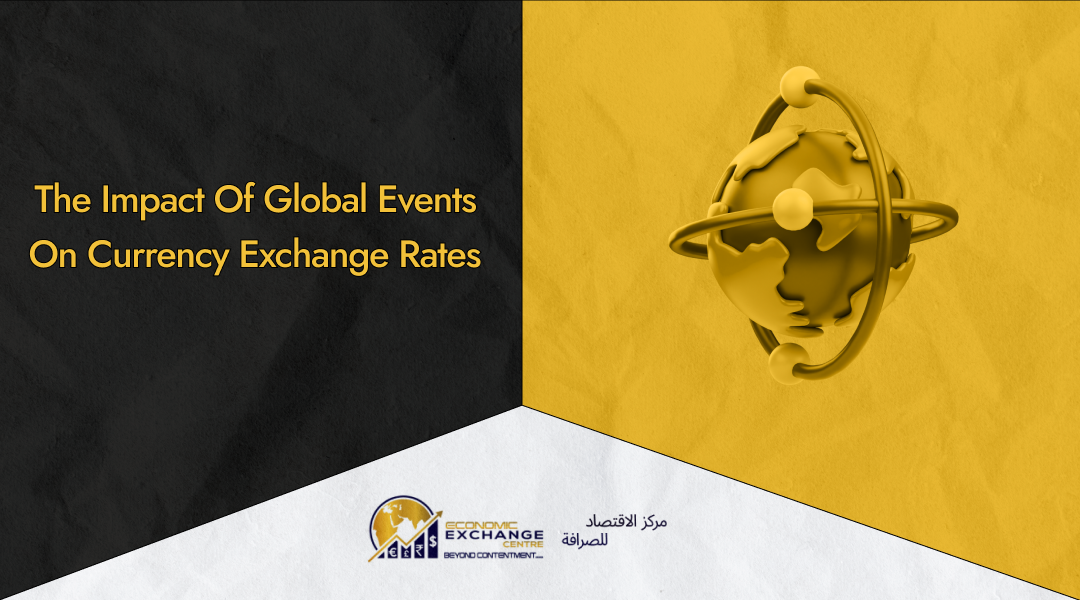
In a world connected by international trade, finance, and digital markets, the value of a nation’s currency can sway like a leaf in the wind. The forces guiding these shifts are often tied to global events that affect economies and markets worldwide. In this guide, we’ll explore the intricate web of cause and effect, uncovering the profound influence of global events on currency exchange rates.
The Dominance of Supply and Demand:
At its core, currency exchange rates are all about supply and demand. When demand goes up, so does the currency’s value, and vice versa.
Think of global events as the DJs at the currency market party. They can crank up the tempo, spark a frenzy, or send everyone home early.
Economic Indicators and Currency Fluctuations:
 Forget jargony economic indicators. Think of them as a nation’s health checkup. Events like GDP reports or employment numbers are like doctors’ notes, indicating the economy’s well-being.
Forget jargony economic indicators. Think of them as a nation’s health checkup. Events like GDP reports or employment numbers are like doctors’ notes, indicating the economy’s well-being.
Rates and the Central Bank Dance, Central banks adjust interest rates, and that affects exchange rates. Imagine this as a ballet – moves influenced by what’s happening on the global stage.
When Politics Meets Finance:
Delve into the far-reaching consequences of international trade disputes, and their capacity to roil currency markets.
Political Stability, Investigate how political turmoil in one nation can trigger currency volatility, sending shockwaves across borders. Sometimes, it’s like watching a soap opera – political instability in one country can spill over and cause currency rollercoasters.
Natural Disasters and Black Swans:
Black Swan Events are the unexpected curveballs life throws, like natural disasters or financial crises. They don’t play by the rules.
Just as we seek refuge from life’s storms, investors seek shelter in safe-haven currencies during uncertainty, impacting exchange rates.
Speculators and Market Sentiment:
Speculators’ Influence..! Think of them as the trendsetters. The moves they make can set the tone for currency markets.
History often repeats itself in currency markets. Understanding market sentiment and reaction patterns is like knowing your favourite song’s chorus – it feels familiar.
Stories That Teach Us
The 2008 Financial Crisis: Remember the financial rollercoaster of 2008? It gave currency exchange rates a wild ride.
Brexit’s Tug of War: We saw how Brexit played ping-pong with the British pound and the euro. It’s a case study in action.
Conclusion:
Currency exchange rates are not isolated from the world’s happenings; they are interconnected with global events, economic indicators, geopolitical shifts, and unforeseen black swan events.
As travelers, investors, or anyone involved in international trade, understanding the influence of global events on currency exchange rates is pivotal. Armed with this knowledge, you can navigate the complex currency markets with greater insight and make more informed decisions.
In an ever-evolving financial landscape, staying informed about the impact of global events on currency exchange rates empowers individuals and businesses to adapt, prepare, and thrive in an interconnected world.
